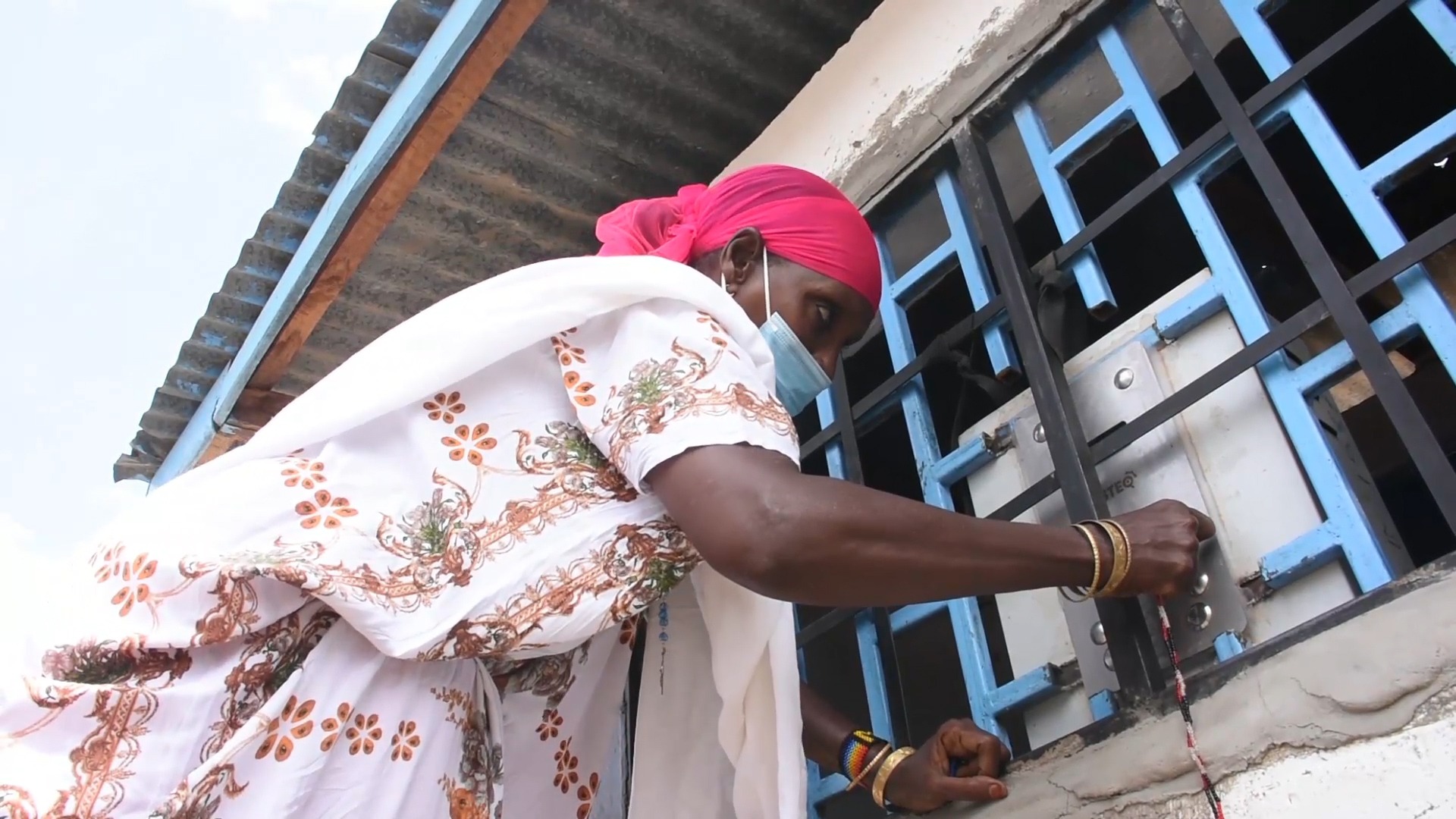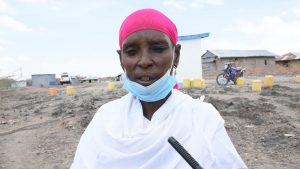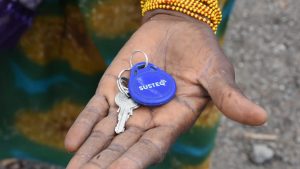
Communities in Northern Kenya’s arid and semi-arid lands face one big threat to their livelihoods: drought. Frequent and intense droughts have severe consequences — from loss of life and food insecurity to millions of people becoming dependent on long-term humanitarian aid. Mary Obele, like her neighbors living in the Kargi and South Horr wards of Marsabit County, struggled to access clean water and relied on shallow wells for decades.

Mary Obele, a resident of Kargi Ward, says the community is no longer forced to lobby politicians to fix their water infrastructure.
“During dry seasons, we were forced to travel long distances to fetch water. . . . Even [what] we got was not good for human consumption.”
— Mary Obele, a resident of Kargi Ward
Mary felt relief when the county government and PREG development partners launched an initiative to reduce the distance residents must walk in search of water for survival. Since 2013, the USAID Kenya Partnership for Resilience and Economic Growth (PREG) has facilitated joint efforts between the government, National Drought Management Authority, and 33 USAID-supported partners in the region, with PREG secretariat support and facilitation from USAID Resilience Learning Activity (RLA).
RLA is an Associate Award under the Feed the Future Kenya Livestock Market Systems Activity, a Leader with Associates contracting mechanism held by ACDI/VOCA. For the last two years, RLA has guided PREG partners through a learning and collaboration process which has resulted in many joint collaborative efforts. Part of this efforts involved helping the Kargi community form a Ward Planning Committee (WPC) spearheaded the LMS AA2 project. The WPC members spearheaded initiatives like this water project in Kargi, Marsabit County.
Grants Improve Access to Water and Boost Self-Sufficiency
The committee streamlined water management and revenue collection for the ward and secured an innovative grant from LMS AA2 implemented by Mercy Corps to install prepaid water meters as well as a grant from I-create implemented by Concern Worldwide to rehabilitate the pipeline system. This allowed water to be piped from a borehole sunk by the Marsabit County government.

A Kargi Ward resident shows the token used at the water meter to access clean water from the newly installed borehole.
Additionally, the installment of the water meter was to curb the mismanagement of funds – since the installation of the meters the committee has been able to collect close to KES 300,000 ($2640.31) in just 6 months while in 10 years there was only KES190,000 ($1672.20) in the account. The funds have also seen the committee become self-sufficient as they are now able to take care of costs such as repairing the generator contrary to the past where the community would wait for donors and county to support for such repairs, which would take time.
No longer trekking several kilometers in search of water, Mary can now access clean water two meters away. “During dry seasons, we were forced to travel long distances to fetch water,” Mary said. “It is not easy, and you are never sure you will get it. Now we can get water closer to our home.”
Better Water Access Minimizes Conflicts, Improves Health
This new access allowed residents to spend their time in more economically productive ways. A reliable water flow also reduced contention among residents over the scarce resource. Community health improved thanks to a reduction in waterborne diseases and better personal hygiene.
“Our houses and all facilities are much cleaner these days,” said Mr. Solomon, a public health officer. “We no longer have problems with skin-related diseases. We developed a habit of using water in washing our hands.”
Hundreds of residents in Kargi and nearby wards, like South Horr, now have access. “The borehole provided a lasting solution.” Mr. Solomon said. “Children will go to school, and the cases of absenteeism are a thing of the past.”
Because water scarcity is set to worsen as the demand for it grows at twice the rate of population, the Marsabit County government has sunk 150 centrally located boreholes across the county and distributed plastic tanks to residents. The county also procured 16 water bowsers, or trailers fitted with water tanks, to supply water to the community and their livestock.
Thanks to the joint work planning sessions facilitated by RLA in 2020 and 2021 throughout six counties (Turkana, Marsabit, Wajir, Isiolo, Samburu, and Garissa), partners are now more deliberate in identifying ways to collaborate and share data. And residents like Mary benefit, as the community becomes more resilient, and food secure as a result.
Learn more about our work in Kenya.
Learn more about the USAID Resilience Learning Activity.








